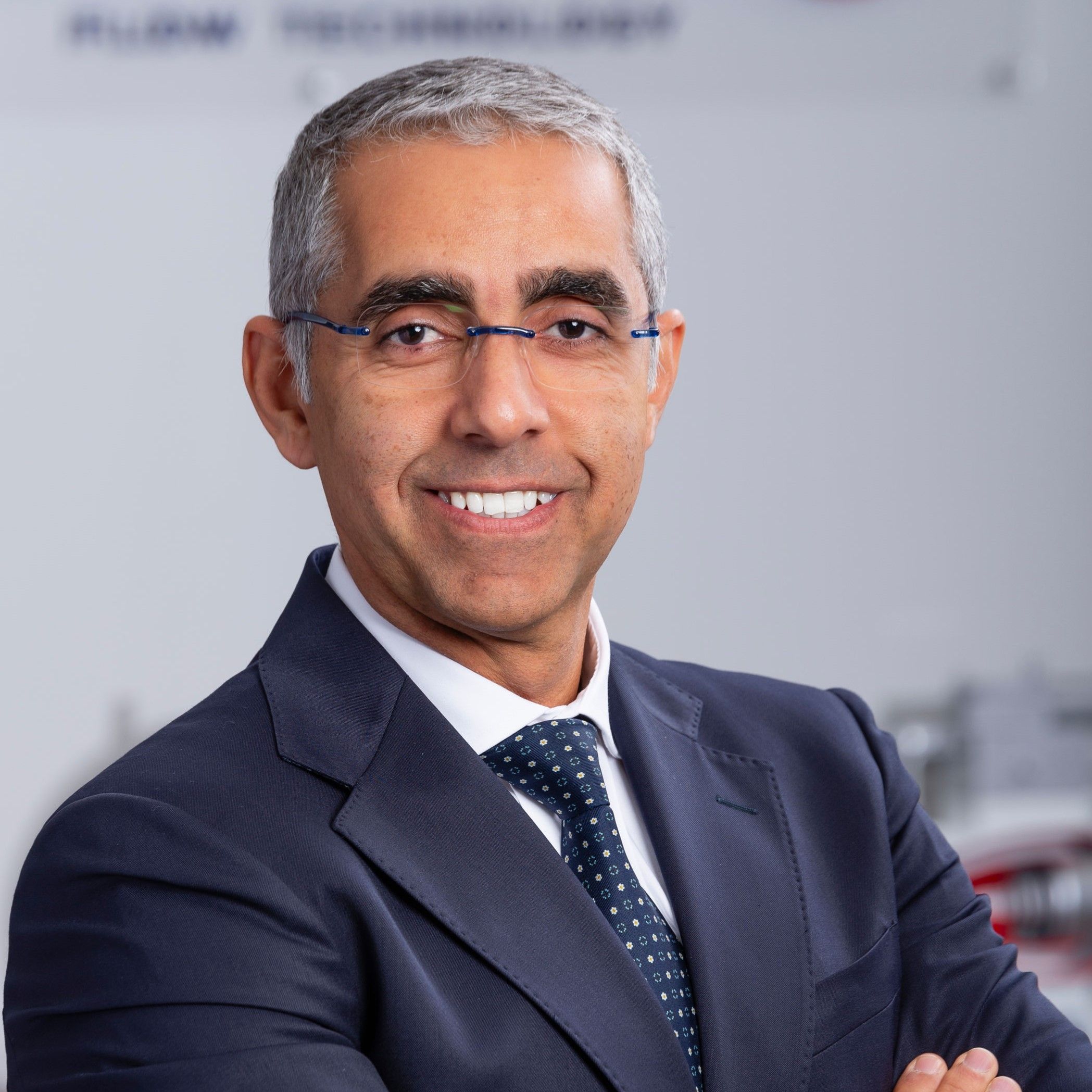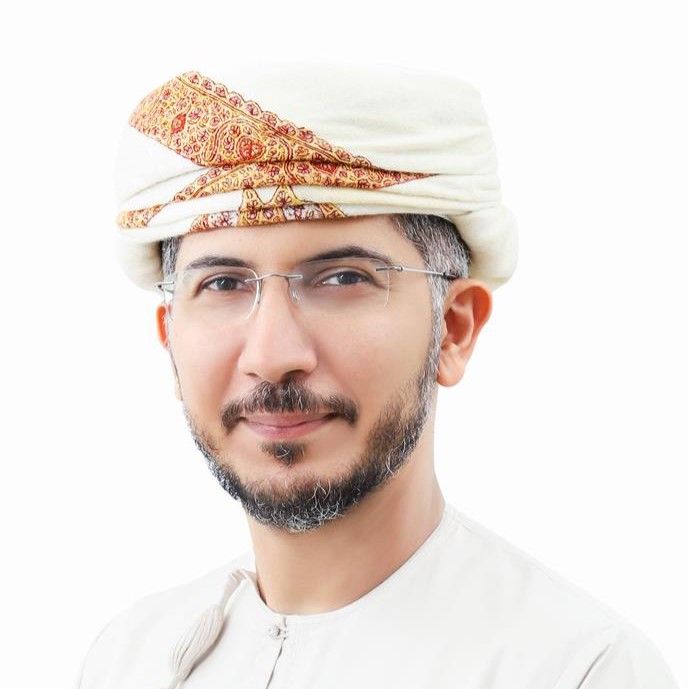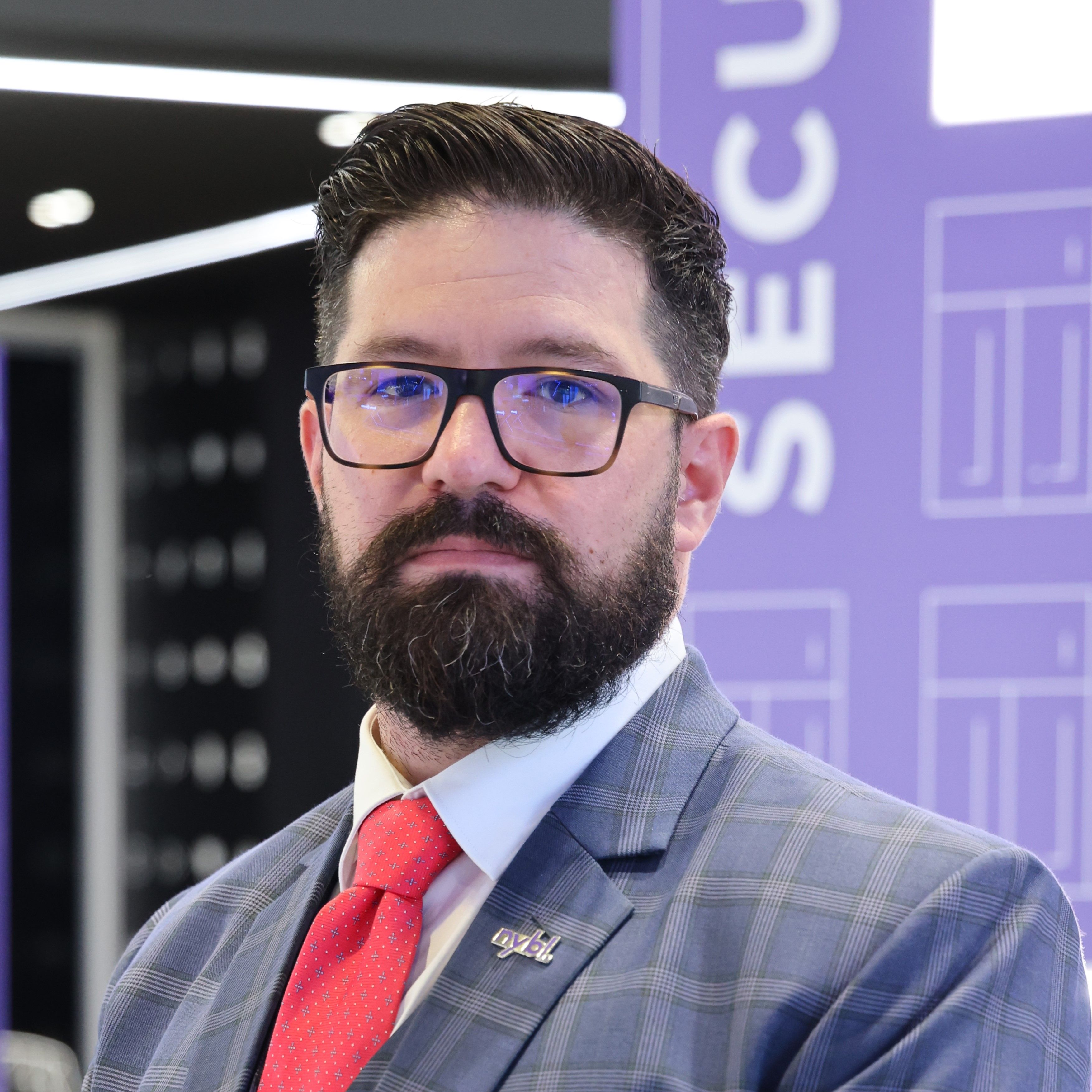Schedule
-
600 mins
-
30 mins
-
30 mins
-
30 mins
-
75 mins
As AI-powered technologies like auto-generated design and autonomous operations redefine the industrial landscape, organizations must navigate the profound changes these advancements bring to the workforce and operations. Moderated by Wassim Ghadban, this panel discussion will delve into the future of work in the age of autonomous systems, examining the new roles that AI will create alongside those it will transform or even replace. Key topics include the role of governance in managing automation risks, strategies for upskilling employees, and frameworks to ensure ethical and safe deployment of AI technologies.
The panel will explore critical questions: How can organizations balance efficiency gains with workforce security? What proactive steps can leaders take to minimize risks associated with job displacement, while maximizing human-AI collaboration? Attendees will gain insights into preparing their teams for a future where AI handles routine tasks autonomously, freeing up human talent for higher-value work. By addressing these challenges, organizations can create a resilient workforce strategy that leverages AI for sustainable growth and inclusive innovation.
Speakers
-
30 mins
-
90 mins
As the oil and gas industry embraces digital transformation, generative AI emerges as a game-changer in exploring sub-surface and its management. This session will present and engage you in the revolutionary applications of generative AI technologies. We will delve into their profound impact on sub-surface modeling, reservoir characterization, and predictive analytics. The presentation will focus on how generative AI enhances our understanding of complex geological formations, enabling more accurate simulations and different scenario planning. Key topics will include integrating generative design principles in reservoir development, enhancing seismic interpretation through AI-driven algorithms, and the role of generative AI in optimizing drilling strategies. Additionally, the session will address the challenges associated with implementing these technologies, including remote monitoring, data quality assessment, model validation, and the need for interdisciplinary collaboration. Join us as we navigate generative AI's exciting possibilities and hurdles in unlocking the full potential of sub-surface resources.
Chairperson
-
60 mins
-
Panel Session 2: Standing on the Shoulders of Giants: Requirements for Scalable Technology Solutions60 mins
This panel will introduce and discuss strategies for adopting scalable and extensible software platforms that enable real operational outcomes by providing the connective tissue between existing technology solutions. Panel experts will delve into strategic and operational value drivers of integrated technology architectures, methods for evaluating technology solutions, and new approaches to technology investment decisions. The discussion will focus on providing actionable insights for creating enterprise technology landscapes that foster sustainability and lasting competitive advantage.
-
75 mins
Ensuring asset integrity and operational reliability is imperative in today's oil and gas industry—not just for efficiency and safety, but as a strategic necessity for sustainable growth and leadership in the energy sector. This session will delve into how digitisation and artificial intelligence are revolutionizing predictive maintenance strategies and asset management practices, accelerating the energy transition, and driving sustainable objectives in line with industry-leading strategic frameworks.
We must harness the power of machine learning, data analytics, and the Internet of Things (IoT) to predict equipment failures before they occur, minimizing downtime, reducing maintenance costs, and mitigating environmental impacts associated with unplanned outages and leaks. This proactive approach is essential for optimizing resource utilization, extending equipment life, and significantly reducing the carbon footprint—key components of a commitment to operational excellence and environmental stewardship.
Key discussions will focus on the imperative implementation of AI-driven predictive models, real-time monitoring through digital twins, and the integration of smart sensors within critical infrastructure. Attendees are urged to gain insights from case studies that showcase successful adoption of these technologies within leading organizations and the wider industry, highlighting substantial improvements in safety, efficiency, sustainability, and cost-effectiveness.
Furthermore, this session will address the challenges that must be overcome to achieve this digital transformation: data security concerns, the urgent need for upskilling the workforce, and overcoming resistance to technological change within organizations. Implementing predictive maintenance through digitisation and AI is not merely a technological advancement—it is a strategic mandate that aligns with a commitment to innovation and plays a pivotal role in shaping a sustainable future and advancing the global energy transition.
Chairperson
-
30 mins
-
80 mins
Businesses looking to successfully realize the transformative potential of agent-driven AI are facing a nascent discipline. Adopting generative AI into their decision-making processes and fostering effective human and machine collaboration will require organizations to make changes to how they operate. This session will introduce agent-driven AI and its strategic integration within enterprises, featuring successful case studies from the oil and gas sector. Participants will learn best practices for implementation while addressing key challenges, including metrics for success, data privacy, environmental impact, and fostering an AI culture. Experts will also discuss the challenges and opportunities associated with the deployment of large language models in cloud and edge environments, offering insights into how organizations can effectively leverage large models for complex tasks versus small models for efficient, real-time processing at the edge to enhance performance and user experience.
Chairperson
-
540 mins
-
10 mins
-
75 mins
Oil and Gas field digital twins and advanced AI technologies are transforming operations by enabling real-time scenario modeling and predictive analysis. This session will explore strengths and limitations of both data-driven models, such as AI / machine learning, and physics-based models.
Physics-based models offer rigor and can better handle causality, but tend to be slower and require significant computational power. Whereas, data-driven models are faster, scalable, and require less domain expertise, these models struggle in establishing causality and mostly provide correlation. These also depend on large, quality controlled and diverse datasets that are often missing.
The session emphasizes combining these approaches to develop more reliable, physics-embedded AI systems. By integrating AI’s predictive power with the causal rigor of physics-based models, oil and gas companies can better mimic real-world operations, improving safety, efficiency, and sustainability
The panel will bring together technology specialists, asset managers, engineers, data scientists, and modeling experts to discuss the current state of the art and future trends. Attendees will gain insights into the risks of overselling big data in oil and gas, the need for diverse datasets, and the value of hybrid modeling approaches.
The discussion will focus on real-world examples of successful implementations in upstream operations, showcasing the tangible benefits of these combined solutions.
Speakers
-
30 mins
-
75 minsThis session focuses on the latest innovations in carbon capture, utilization, and storage (CCUS) technologies, aiming to address the twin challenges of climate change and sustainable development. It will explore advancements across various stages of the CCUS value chain, including capture, compression, transportation, and storage, along with novel utilization strategies. With an emphasis on scaling early adoption technologies and accelerating the deployment of mature solutions, this discussion will highlight case studies from key industries such as power generation, cement, and hydrogen production. Special attention will be given to the role of policy frameworks and technological readiness levels (TRL) in fostering innovation, ensuring cost-efficiency, and enhancing long-term environmental impact. Speakers are encouraged to present groundbreaking research, implementation challenges, and pathways to achieving net-zero targets through CCUS technologies.Chairperson
-
60 mins
-
75 mins
In an era where sustainable development has become a pivotal concern, balancing Energy economic value with environmental stewardship is no longer optional. The panel explores the strategies and technologies driving this balance. Furthermore, it will deeply examine the critical enablers that allow companies to generate value while committing to sustainability targets.
Key topics will include the role of digital transformation in achieving sustainability goals, leveraging data analytics for efficient resource management, and the integration of renewable energy sources. Panelists will share insights on cutting-edge technologies and innovative practices that are setting new industry standards. The panel will show a comprehensive understanding of how digitalization can serve as a powerful tool in aligning economic performance with sustainability objectives.
-
75 mins
As the oil and gas industry continues its digital transformation, the need for tangible value creation through digitisation and AI technologies becomes critical. This session aims to separate hype from reality by focusing on real-world case studies that demonstrate the practical benefits of AI-based predictive models, machine learning, digital twins, physics-embedded simulations, and generative AI technologies.
Attendees will gain insights into how various digital technologies such as machine learning, AI, generative AI, advanced data analytics and visualization tools are being applied to optimize subsurface and production performance.
The session will feature case studies in specific application areas such as reservoir characterization, simulation, sweep optimization, EOR optimization, advanced log and well test analysis, reservoir surveillance, and virtual flow metering, failure prediction and detection.
By showcasing these practical case studies, this session aims to highlight how AI and digitization are transforming subsurface and production operations today—delivering measurable results beyond just technology discussions. Speakers will address both the successes and challenges of implementing these technologies, offering insights into where the industry stands in terms of real-world adoption and ongoing innovation.
Chairperson
-
15 mins
-
30 mins








































